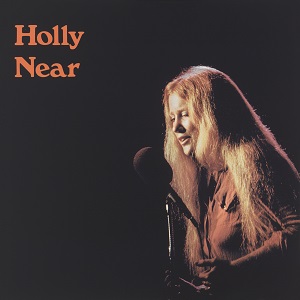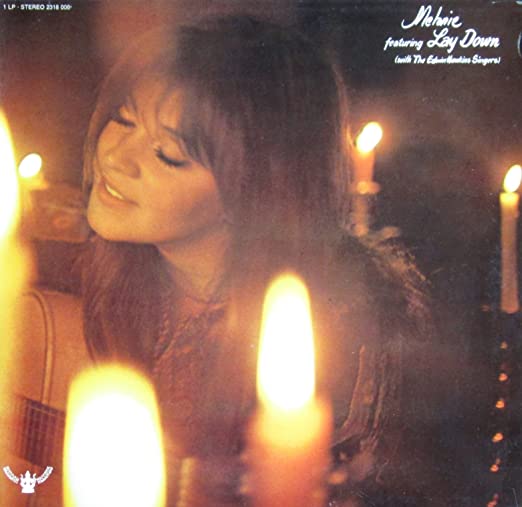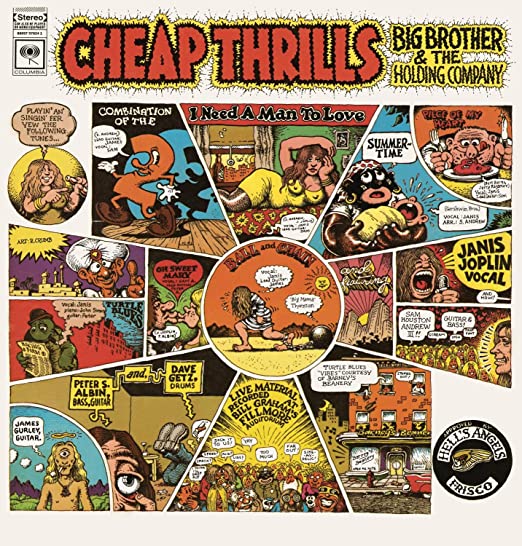Among the many programs that were cancelled due to the COVID-19 pandemic was “The Music of May 4th,” which was to have been presented by two professors at Kent State University at Ashtabula (KSUA).
Bradley Keefer, BA ’80, MA ’84, PhD ’06, associate professor of history, is one of seven members of the Kent State community who received a Public Education and Awareness Award in 2018 from the Ohio History Connection’s State Historic Preservation Office for their efforts to preserve the history and site of May 4.
David Perusek, BGS ’75, MA ’89, PhD, associate professor of anthropology, is chair of the Kent State Ashtabula Campus May 4th Commemoration Committee. He also was part of a group of people from which the May 4th Task Force emerged in 1975, was involved in the gym annex protests in 1977, and has served on the board of the Kent May 4th Center since shortly after its inception in 1989.
For his part of the music presentation, Keefer says, “my task was to ask whether what we remember about the music of the counterculture actually fit with the music most people were listening to. I assembled examples of the types of music—bubble-gum pop, psychedelic/acid rock, flower power, jam bands, party/drug, and message tunes—and artists who were popular at the time, whether they were involved in the protest movement or not.
“It is fascinating to me that a 50s tribute band like Sha Na Na, an outspoken rock act like Jefferson Airplane, a soul/funk band like Sly and the Family Stone, and a pure blues diva like Janis Joplin could all play at Woodstock [in 1969], yet only Jefferson Airplane could claim any real activist credibility. Thus, my playlist was less focused than Dave’s.”
Perusek focused his presentation on the American tradition of protest songs. “Phil Ochs, a contemporary of Bob Dylan who wrote and performed with a sharper political edge and was, therefore, viewed as less marketable than Dylan, once observed that, ‘A protest song is a song that’s so specific that you cannot mistake it for BS,’” notes Perusek.
“And Reverend Dr. Martin Luther King Jr., commenting on protest songs of the civil rights movement, observed that those freedom songs as they were known, ‘invigorate’ and ‘give unity to the movement in a most significant way.’ That is also true of the songs on [my] playlist.”
We asked them both to share their playlists with Kent State Magazine readers. Amy Thomas, director of the KSUA library and assistant professor of library science, and Dylan Tyler, senior library associate at the KSUA library, helped track down the names of albums in which the songs appeared, album covers, recording and release dates, and record labels.
Songs of Protest (compiled and annotated by David Perusek, PhD)

“We Shall Overcome”
The Morehouse College Glee Club
We Shall Overcome
Recorded: Not Available
LP Released: Late 1960s, Century Custom Recording
“This African-American gospel song, which dates back to 1900, became an anthem of the civil rights movement and of other liberation movements and did service in protests against the war in Vietnam. We Shall Overcome was sung at sit-ins, on picket lines, in demonstrations, and on marches of various kinds.”

“We Shall Not Be Moved”
The Freedom Singers
“We Shall Overcome”
Recorded: Not Available
LP Released: 1963, Mercury
“This song was one of several sung by 194 members of the May 4th Coalition in the summer of 1977 as we watched helmeted policemen approach to remove us from Blanket Hill as we resisted the construction of a gym "annex" over a large swath of the May 4th site. We didn’t sing it in exactly that style, but it was perfect under the circumstances and its impact was powerful.”

“This Land Is Your Land”
Pete Seeger
Pete Seeger Sings Woody Guthrie
Recorded: Unavailable
LP Released: 1968, Folkways
“Woody Guthrie came out of Oklahoma, the Dust Bowl and the Great Depression, writing and singing union songs and songs of the working class while playing them on an acoustic guitar that bore the message, “This Machine Kills Fascists.” This is perhaps his most famous contribution, sung in this recording by Pete Seeger, who took up the torch from Guthrie and carried it until his death a few years ago at the age of 94.”

“The Times They Are A-Changin’”
Bob Dylan
The Times They Are A-Changin’Recorded: August 6—October 31, 1963
LP Released: January 13, 1964, Columbia
“Guthrie and Seeger’s work animated movements and inspired countless others, including those who would carry it forward. People like Bob Dylan.”

“If I Had a Hammer”
Peter, Paul and Mary
Peter, Paul and Mary
Recorded: Not Available
LP Released: May 1962, Warner Bros.
“Peter, Paul and Mary walked and performed at the March on Washington alongside Rev. Dr. Martin Luther King and at other demonstrations across the country. Both Peter, Paul and Mary and Joan Baez have played at Kent State in connection with May 4th.”

“Blowin’ in the Wind”
Joan Baez
Joan Baez in Italy
Recorded: 1967
LP Released: 1967, Vanguard
“During the gym struggle at Kent State, in the summer of 1977, Joan Baez played a free concert on the KSU Commons and joined us on a march across campus and through downtown Kent. I was part of her security detail that day and when, at one point during the concert, she turned during a guitar riff, looked across the stage at me and smiled, I all but melted on the spot.”

“Puff the Magic Dragon”
Peter, Paul and Mary
Moving
Recorded: 1962
LP Released: January 15, 1963, Warner Bros.
“In 1990, Peter, Paul and Mary played and spoke on the Commons, during the 20-year commemoration of May 4th. That night they played a benefit concert before a packed house to raise money for a May 4th scholarship at Kent State. Among the many well-known songs they played on that occasion was this one, for which some of you, your children or grandchildren may know them best.”

“Where Have All the Flowers Gone?”
The Kingston Trio
Where Have All the Flowers Gone?
Recorded: Not Available
LP Released: 1965, Pickwick/33
“Some protest songs of the Vietnam War era rose high on the Billboard charts. One of the first was co-written by Pete Seeger, who wrote the first three stanzas while on a flight bound for Cleveland, on his way to a performance at Oberlin College. This version of that song is performed by The Kingston Trio.”

“Eve of Destruction”
Barry McGuire
Eve of Destruction
Recorded: Not Available
LP Released: 1965, Dunhill
“In 1965, Barry McGuire, formerly of the New Christy Minstrels, released what was probably the most dramatic protest song of the decade. Although as controversial as could be at the time and banned by lots of radio stations around the country, it hit #1 on the charts and, went on to play an important role in lowering the voting age in the US from 21 to 18.”

“Sky Pilot”
Eric Burdon & The Animals
The Twain Shall Meet
Recorded: December 1967
LP Released: 1968, MGM
“In 1968, The Animals hit #14 on the charts with this song that called out the hypocrisy of a military chaplain blessing troops, bombs and the pilots who drop them on people.”

“War”
Edwin Starr
War & Peace
Recorded: Not Available
LP Released: January 1, 1970, Motown
“Perhaps it should be no surprise that a powerful #1 song of 1970 was simply called 'War,' as written and performed by Edwin Starr.”

“Universal Soldier”
Donovan
Fairy Tale
Recorded: September 1965
LP Released: November 1965, Hickory
“One of three anti-war songs of the period that lament the war while focusing on the agency and moral responsibility of those who carry it out.” [The other two are listed directly below.]

“I Ain’t Marchin’ Anymore”
Phil Ochs
I Ain’t Marching Anymore
Recorded: Not Available
LP Released: 1965, Elektra

“Handsome Johnny”
Richie Havens
Mixed Bag
Recorded: Not Available
LP Released: 1966, Verve
“‘Handsome Johnny’ was co-written by Richie Havens with Lou Gosset, Jr., himself a folk singer and an actor. Havens played that song at Woodstock and at several performances in Kent over the years. I literally bumped into him during a march against the second US invasion of Iraq as it made its way through downtown Kent on May 4, 2004. He died of a heart attack in April 2013, but his music lives on and his spectacular performance at Woodstock can be seen on YouTube and in the documentary movie about the 1969 festival at Yasgur’s farm.”

“Feel Like I’m Fixin’ to Die Rag”
Country Joe and the Fish
I-Feel-Like-I’m-Fixin’-to-Die
Recorded: July 1967—September 1967
LP Released: November 1967, Vanguard
“Country Joe McDonald played at Woodstock, too. His ‘Feel Like I’m Fixin’ to Die Rag’ performed as a sing-along was a high point of the festival and became an anthem of the anti-war movement. In my capacity as a board member of the Kent May 4th Center, he and I once spent an hour and a half or so together, over coffee, on the second floor of the student center. He had become a farmer by then, and he waxed eloquent about his farm life in northern California (if I remember the place correctly). I found it hard to believe that the quiet, grey-haired farmer across the table was the firebrand of Woodstock. But he was.”

“Light My Fire”
The Doors
The Doors
Recorded: August 29—September 23, 1966
LP Released: January 4, 1967, Elektra
“Perhaps the strangest, certainly the most singular, connection of music to May 4th stems from the burning of the ROTC building on the evening of May 2, 1970. It is not known to this day who started the fire, only that it began after the building had been surrounded by police for something like an hour or more. Also, that fire, in a wood framed building already scheduled for demolition, became a pretext for summoning the National Guard. But while it raged, Kent State students, political and apolitical alike, flooded the phone lines of local radio stations with requests for this 1967 chart topper by The Doors.”

“Ohio”
Crosby, Stills, Nash & Young
So Far
Recorded: 1969-1970
LP Released: August 1974, Atlantic
“Of course, the song most widely associated with May 4th is a song about that day itself. ‘Ohio’ by Crosby, Stills, Nash and Young was released a few weeks after the shootings and, despite being banned by many radio stations, quickly rose to #1 and remained on the charts for seven weeks that summer. In 2004, Rolling Stone magazine named it ‘one of the greatest songs of all time.’”

“Find the Cost of Freedom”
Crosby, Stills, Nash & Young
So Far
Recorded: 1969-1970
LP Released: August 1974, Atlantic
“Songs of protest are not only recorded in studios and sometimes played on radio stations. They are sung on the front lines: at rallies and sit-ins, on picket lines and marches. In those circumstances, context, passion and urgency may combine to amplify such songs and transport their meaning to remarkable heights.
That was certainly the case on the morning of July 12, 1977, when the longest student occupation of university property in US history culminated with 194 arrests at the May 4th site at Kent State.
Historian Miriam Jackson, BA ’73, MAT ’00, herself among the 194, describes the scene and the songs that were part of it in her 2017 book, We Shall Not Be Moved, about the gym struggle at Kent State:
‘The crowd of observers, supporters and media gathered on the Taylor Hall balcony numbered about 2,000. Many chanted and sang along with the sit-in members as the police closed in and began, person by person, to remove the May 4th Coalition from Blanket Hill. . . . They sang Steven Stills’ “Find the Cost of Freedom” and a sudden, haunting quiet descended upon the hill. . . . One could feel an almost tangible power, a kind of dignified hope and confidence, seated there under the tall, silent trees on the hill, amidst its memories, good and bad. For many, participation in this mass arrest was a personal statement of commitment to the 1970 dead by being there to defend their memories.’”

“It Could Have Been Me”
Holly Near
Holly Near: A Live Album
Recorded: 1974
LP Released: 1974, Redwood
“This was written by Holly Near and first performed by her on the Commons in Kent State on May 4, 1974, during a commemoration at which Jane Fonda spoke and Judy Collins also performed. It has been and remains an anthem in the still on-going quest for the truth about May 4th and, with truth, some measure of justice for the victims of May 4th. It pays tribute to their lives, their youth, their sacrifice and the cost of freedom.”
POPULAR SONGS (compiled by Bradley Keefer, PhD)

“Lucy in the Sky with Diamonds”
The Beatles
Sgt. Pepper’s Lonely Hearts Club Band
Recorded: December 6, 1966–April 21, 1967
LP Released: June 1, 1967, Parlophone Records Limited

“Sympathy for the Devil”
The Rolling Stones
Beggars Banquet
Recorded: February–June, 1968
LP Released: December 6, 1968, London

“White Rabbit”
Jefferson Airplane
Surrealistic Pillow
Recorded: October 31–November 22,1966
LP Released: February 1, 1967, RCA Victor

“Somebody to Love”
Jefferson Airplane
Surrealistic Pillow
Recorded: October 31–November 22,1966
LP Released: February 1, 1967, RCA Victor

“White Room”
Cream
Wheels of Fire
Recorded: July 1967–April 1968
LP Released: August 9, 1968, ATCO

“Turn! Turn! Turn!”
The Byrds
Turn! Turn! Turn!
Recorded: September 1965
LP Released: December 6, 1965, Columbia

“You Keep Me Hangin’ On”
The Supremes
The Supremes Sing Holland–Dozier–Holland
Recorded 1964-1966
LP Released: January 23, 1967, Motown

“Mamma Told Me (Not to Come)”
Three Dog Night
It Ain’t Easy
Recorded: 1969–1970
LP Released: March 31, 1970, ABC/Dunhill

“Casey Jones”
Grateful Dead
Workingman’s Dead
Recorded: February 1970
LP Released: June 14, 1970, Warner Bros.

“Hair”
The Cowsills
The Cowsills in Concert
Recorded: Not Available
LP Released: May 3, 1969, MGM

“Aquarius/Let the Sunshine In”
The 5th Dimension
The Age of Aquarius
Recorded: 1968–1969
LP Released: May 1969, Soul City

“Purple Haze”
The Jimi Hendrix Experience
Are You Experienced?
Recorded: October 23, 1966–April 3, 1967
LP Released: August 23, 1967, Reprise

“Two Hangmen”
Mason Proffit
Wanted
Recorded: Unavailable
LP Released: 1969, Happy Tiger

“Everyday People”
Sly and the Family Stone
Stand!
Recorded: 1968-1969
LP Released: May 3, 1969, Epic

“Dazed and Confused”
Led Zeppelin
Led Zeppelin
Recorded: September–October 1968
LP Released: January 12, 1969, Atlantic

“Green Tambourine”
The Lemon Pipers
Green Tambourine
Recorded: 1967
LP Released: February 1968, Buddah

“Lay Down”
Melanie
Candles in the Rain
Recorded: Unavailable
LP Released: April 1970, Buddah

“Piece of My Heart”
Big Brother and the Holding Company
(with Janis Joplin)
Cheap Thrills
Recorded: March 2–May 20, 1968
LP Released: August 12, 1968, Columbia

“Paranoid”
Black Sabbath
Paranoid
Recorded: June 16–21, 1970
LP Released: September 18, 1970, Warner Bros.

“San Francisco (Be Sure to Wear Flowers in Your Hair)”
Scott McKenzie
The Voice of Scott McKenzie
Recorded: Not Available
LP Released: December 1967, Ode

“Fortunate Son”
Creedence Clearwater Revival
Willy and the Poor Boys
Recorded: 1969
LP Released: November 2, 1969, Fantasy

“Just Dropped In (To See What Condition My Condition Was In)”
Kenny Rogers & The First Edition
The First Edition
Recorded: 1967
LP Released: October 1967, Reprise